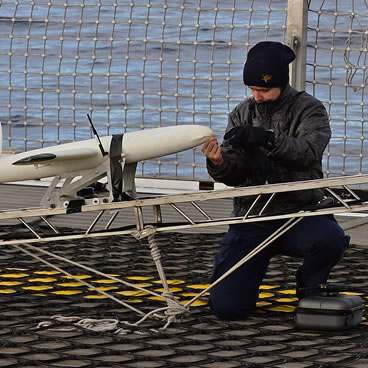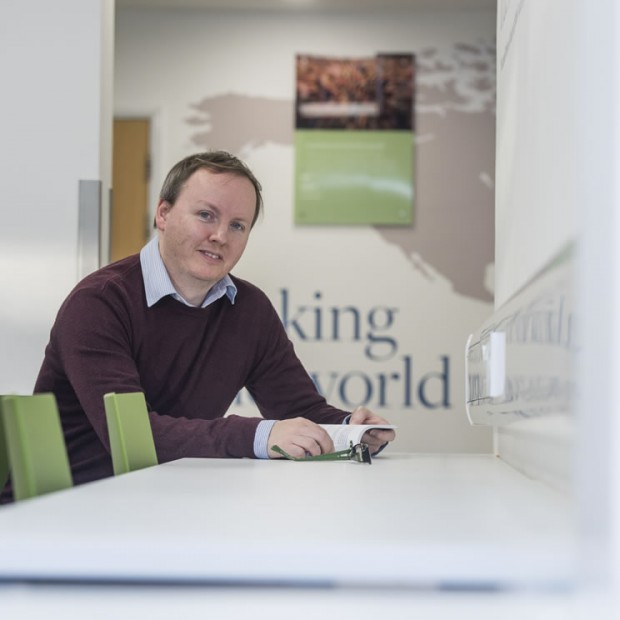 The University is to share in £8m funding to help create the DNA starting blocks for synthetic biology. Synthetic biology is a new scientific method that applies engineering principles to biology to make and build new biological parts, devices and systems. It’s being used to create products such as biofuels and anti-malaria drugs from microbes like yeast or bacteria. Synthetic biology has been identified by the UK Government as one of the most promising areas of modern science.
Ever larger pieces of DNA, such as genes and gene clusters, are required for synthetic biology, and making these can be a tedious and slow process. In this project, partners will analyse DNA made by modern ultra-high throughput chemical methods and optimise the process. They will also explore new ways to make large pieces of DNA.
At Southampton, the funding will provide major new equipment, including a mass spectrometer - which will be one of the best in the UK - to improve the quality and reduce the cost of DNA synthesis. This investment complements the leading research into nucleic acids by the University’s Institute for Life Science (IfLS).
The University is to share in £8m funding to help create the DNA starting blocks for synthetic biology. Synthetic biology is a new scientific method that applies engineering principles to biology to make and build new biological parts, devices and systems. It’s being used to create products such as biofuels and anti-malaria drugs from microbes like yeast or bacteria. Synthetic biology has been identified by the UK Government as one of the most promising areas of modern science.
Ever larger pieces of DNA, such as genes and gene clusters, are required for synthetic biology, and making these can be a tedious and slow process. In this project, partners will analyse DNA made by modern ultra-high throughput chemical methods and optimise the process. They will also explore new ways to make large pieces of DNA.
At Southampton, the funding will provide major new equipment, including a mass spectrometer - which will be one of the best in the UK - to improve the quality and reduce the cost of DNA synthesis. This investment complements the leading research into nucleic acids by the University’s Institute for Life Science (IfLS). Funding to help DNA research
 The University is to share in £8m funding to help create the DNA starting blocks for synthetic biology. Synthetic biology is a new scientific method that applies engineering principles to biology to make and build new biological parts, devices and systems. It’s being used to create products such as biofuels and anti-malaria drugs from microbes like yeast or bacteria. Synthetic biology has been identified by the UK Government as one of the most promising areas of modern science.
Ever larger pieces of DNA, such as genes and gene clusters, are required for synthetic biology, and making these can be a tedious and slow process. In this project, partners will analyse DNA made by modern ultra-high throughput chemical methods and optimise the process. They will also explore new ways to make large pieces of DNA.
At Southampton, the funding will provide major new equipment, including a mass spectrometer - which will be one of the best in the UK - to improve the quality and reduce the cost of DNA synthesis. This investment complements the leading research into nucleic acids by the University’s Institute for Life Science (IfLS).
The University is to share in £8m funding to help create the DNA starting blocks for synthetic biology. Synthetic biology is a new scientific method that applies engineering principles to biology to make and build new biological parts, devices and systems. It’s being used to create products such as biofuels and anti-malaria drugs from microbes like yeast or bacteria. Synthetic biology has been identified by the UK Government as one of the most promising areas of modern science.
Ever larger pieces of DNA, such as genes and gene clusters, are required for synthetic biology, and making these can be a tedious and slow process. In this project, partners will analyse DNA made by modern ultra-high throughput chemical methods and optimise the process. They will also explore new ways to make large pieces of DNA.
At Southampton, the funding will provide major new equipment, including a mass spectrometer - which will be one of the best in the UK - to improve the quality and reduce the cost of DNA synthesis. This investment complements the leading research into nucleic acids by the University’s Institute for Life Science (IfLS). 

